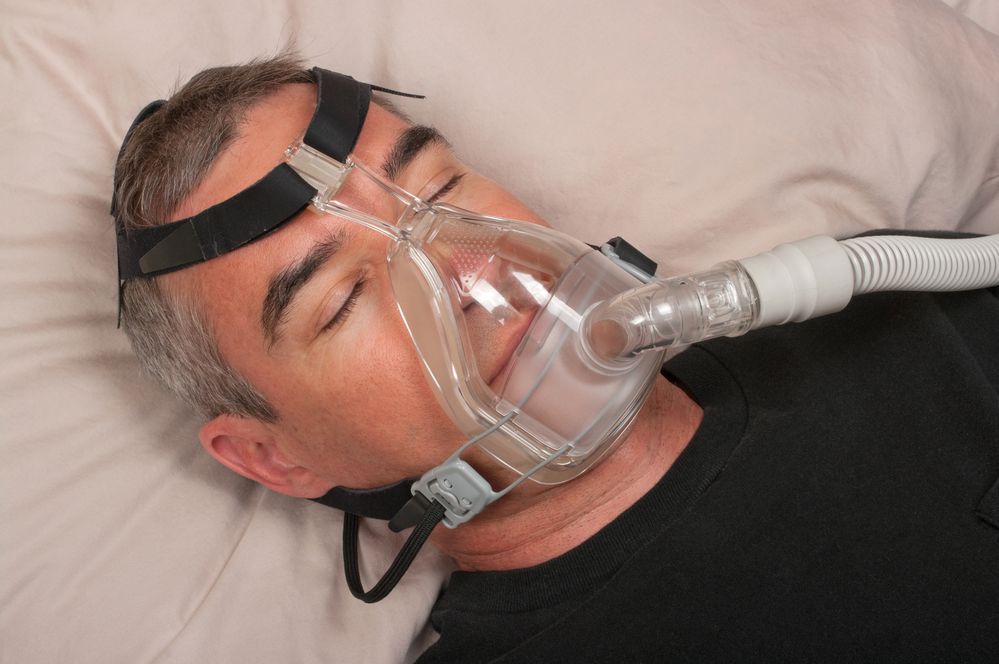CPAP or BiPAP: Which Sleep Apnea Machine Do You Need?
 When it comes to sleep apnea machines, it’s important that you have the right type for your sleep apnea diagnosis. There are two types of machines available: CPAP and BiPAP. What are the differences between these two machines, and how do you know which one you need? Keep reading to learn more.
When it comes to sleep apnea machines, it’s important that you have the right type for your sleep apnea diagnosis. There are two types of machines available: CPAP and BiPAP. What are the differences between these two machines, and how do you know which one you need? Keep reading to learn more.
CPAP Is for OSA
We know that’s a lot of abbreviations, so we’ll break it down for you. OSA is short for obstructive sleep apnea. This form of sleep apnea is caused by a physical obstruction in the airway—typically, your tongue, throat muscles, and other tissues that relax and collapse when you sleep. While it’s natural for relaxation and some collapsing of these muscles and tissues to occur, for those with obstructive sleep apnea, they collapse too much and block the airway.
When your brain realizes your body isn’t getting enough oxygen, it will wake you just enough to take a proper breath. You won’t remember waking up in most cases, but this can happen several times a minute for patients with OSA, which is why you’ll still feel groggy the next day, no matter how much sleep you get.
A CPAP machine combats this by applying continuous positive airway pressure—that’s what CPAP stands for!—to your throat and lungs. That pressure helps keep the airway open so you can breathe while you sleep. It’s a highly effective treatment method for OSA, and can help you to finally sleep soundly again.
BiPAP is for CSA
CSA stands for central sleep apnea. This form of sleep apnea is not related to a physical obstruction, but a neurological disconnect between your brain and the muscles responsible for breathing. While sleeping, those with CSA will periodically stop breathing because their brain simply isn’t sending the right signals to their lungs and related muscles. Breathing can stop for several seconds until the lack of oxygen causes the person to startle awake enough that they start breathing again.
For those with CSA, these episodes can be very disconcerting. While OSA patients don’t usually remember their micro-wakings, CSA patients frequently find themselves jerking awake with the feeling that they’re suffocating.
Because patients with CSA aren’t experiencing a blockage in their airways that’s stopping them from breathing, a CPAP doesn’t provide what they need to continue breathing and get the rest they need while sleeping. Instead, these patients need a BiPAP, which stands for bilevel positive airway pressure. These machines provide a higher amount of pressure than CPAP machines, and can be set to apply different levels of pressure when inhaling than when exhaling. So, rather than simply applying enough pressure to keep the airway open, a BiPAP provides more support in breathing regularly, despite the signal disruptions from the brain.
Getting the Right Machine
The only way to know for sure which machine you need is to perform a sleep study under the supervision of a medical professional. They will diagnose which type of sleep apnea you have (OSA or CSA, or perhaps a combination of the two known as complex sleep apnea) and provide you with a prescription for the correct type of machine.
Your doctor will also provide you with the prescribed air pressure levels for whichever machine you’re given, so that your machine can provide the exact level of pressure you need to breathe comfortably. For example, some individuals have more obstruction in the airway, so they need more pressure to keep the airway clear, while others will need a lower amount of pressure to continue breathing normally.
Once you’ve received your prescription, speak to one of our representatives. We can help you to find a CPAP or BiPAP machine for your prescription, and assist you with selecting a mask that is comfortable for you and fits well. We can also help you with adjusting the mask so that it fits properly and provides you with a proper seal throughout the night.
If you have any further questions regarding how to select the right CPAP or BiPAP for your sleep apnea, feel free to reach out to us. Our team of experts is always ready and willing to assist you!